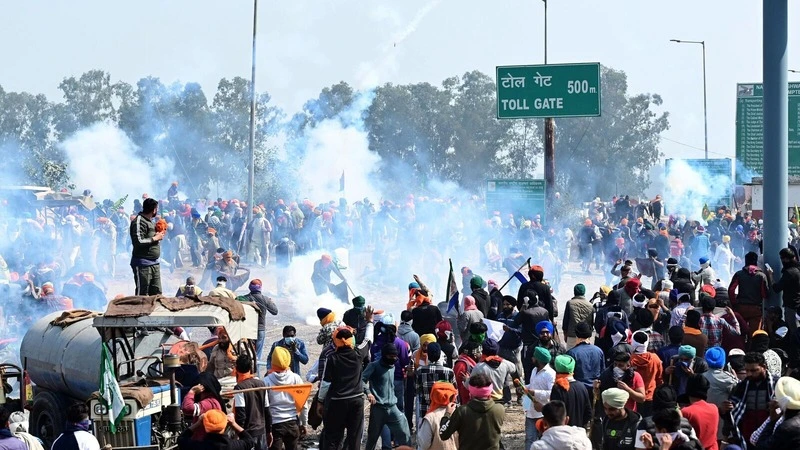The Supreme Court on Friday requested the names of unbiased members for an unbiased committee that would deal with farmers holding demonstrations close to the Shambhu border from the governments of Punjab and Haryana. The farmers are asking for a legally binding guarantee of the Minimum Support Price (MSP) for their crops. The court emphasized that the farmer's concerns needed to be addressed in order to keep things from getting worse.
A bench comprising Justices Surya Kant and R. Mahadevan advised the state governments to persuade farmers to redirect tractors, JCB machines, and other agricultural equipment to agricultural farms and lands. The bench also stressed the importance of suggesting neutral personalities to restore farmers' confidence.
"We welcome suggestions for neutral personalities to inspire confidence among the farmers," the bench stated. A panel of agricultural scientists, economists, and professors from agricultural universities was recommended to participate by the court, which admitted their lack of experience in the field.
To address the concerns of the farmers, the Supreme Court had previously suggested the creation of an independent committee made up of distinguished people. On August 12, the case will be heard again by the court.
In February, the Supreme Court directed the Haryana and Punjab governments not to remove protesting farmers from the Shambhu border after the Haryana government barricaded the area.
An interim ruling by the Punjab and Haryana High Court permitting the removal of barriers from the Amba-New Delhi national highway has been contested by the Haryana government. In response to calls from farmer's unions to march to Delhi and demand a formal MSP guarantee, the state closed the border.
The Punjab and Haryana High Court observed on July 10 that the border closure hindered citizen mobility and stressed the border's significance as a vital route connecting Jammu and Kashmir. Delhi, Punjab, and Haryana. The Haryana government contended that the order issued by the High Court was a threat to law and order because it failed to take the gravity of the situation into account.
"The interim order could cause serious law and order repercussions in Haryana and threaten life and property around the Shambhu border and other parts of Haryana," the Haryana government stated in its appeal to the Supreme Court.
The Supreme Court, on July 12, questioned Haryana's decision to block the highway and directed the state to regulate traffic instead. "How can a state block a highway? It has a duty to regulate traffic. Open the border but regulate it," the top court told the Haryana government.
The Haryana government's plea emphasized that maintaining law and order is the state's responsibility and that decisions regarding the Shambhu border should be made based on the ground situation and inputs from the state.
Supreme Court recommends "Neutral Mediator" to resolve Shambhu Border blockade: Know the details
Supreme Court suggests appointing a neutral mediator to address the trust deficit and resolve the Shambhu border blockade between farmers and the government.

Also Read - Which South Delhi school got a bomb threat? Delhi Police gives a big update on threat mail.